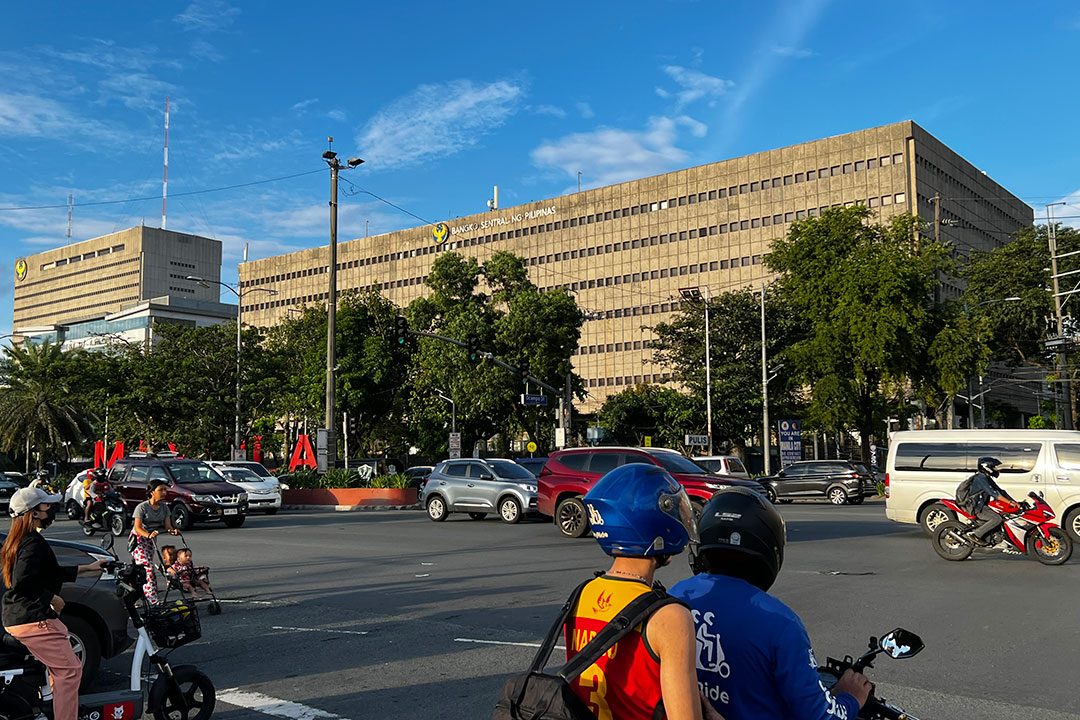BSP’s net income drops by 17.8% in the first half

THE BANGKO SENTRAL ng Pilipinas’ (BSP) net profit dropped by 17.8% in the first half due to lower revenues.
The central bank’s net income declined to P70.3 billion in the first semester from P85.5 billion in the same period a year ago, based on its income statement posted on its website.
This came as its revenues went down by 14.7% to P140 billion in the period from P164.1 billion a year ago.
Broken down, interest income, which accounted for the bulk of the BSP’s revenues, edged up by 0.9% year on year to P120.9 billion from P119.8 billion.
Miscellaneous earnings, which are made up of fees, penalties and other operating income, slumped by 56.8% to P19.1 billion from P44.3 billion the prior year.
Meanwhile, the BSP’s expenses dropped by 2.6% to P103.4 billion in the first semester from P106.1 billion a year earlier.
Broken down, interest expenses fell by 17% year on year to P70 billion from P84.3 billion, while other expenses, which include net trading losses, climbed by 53.1% to P33.4 billion from P21.8 billion.
This brought the central bank’s net income before foreign exchange (FX) gains or losses, income tax expenses, and capital reserves to P36.7 billion in the first half, declining by 36.7% year on year from P57.95 billion.
However, the BSP’s bottom line was boosted by a P33.7-billion net FX gain realized from its foreign currency-denominated transactions in the period, which was 22.2% higher than the P27.6 billion seen a year prior.
Rizal Commercial Banking Corp. Chief Economist Michael L. Ricafort said the BSP’s profitability in the period may have been brought down by base effects.
“This could be partly due to higher base effects given the sharp increase in income in recent years,” he said in a Viber message.
“Any adjustments may be attributed to fulfilling its price stability and financial stability mandate.”
Meanwhile, Reinielle Matt M. Erece, an economist at Oikonomia Advisory & Research, Inc., attributed the central bank’s lower income in the period to the maturity of its issued securities.
“This is as the BSP will have to repay these T-bills and bonds from investors and bondholders,” he said in a Viber message.
“Further, the dip in BSP’s assets can be traced to these debt repayments, which caused the central bank’s reserves to fall. We may expect the same trend further as the debt service bill continues to increase.”
Separate data showed that the BSP’s total assets declined by 2.3% to P7.69 trillion at end-June from P7.87 trillion in the same period in 2024.
Its international reserves, which made up most of its assets, went down by 3.1% year on year to P5.93 trillion from P6.12 trillion.
Its holdings of domestic securities also dropped to P1.1 trillion from P1.16 trillion.
On the other hand, the central bank’s liabilities declined by 3.6% to P7.39 trillion as of June from P7.67 trillion a year earlier.
Currency in circulation stood at P2.52 trillion, while deposits with the central bank were at P2.31 trillion.
Meanwhile, the BSP’s net worth went up by 46.2% to P303.6 billion at end-June from P207.7 billion from a year prior.
Its surplus or reserves — which include its unrestricted retained earnings, capital reserves, unrealized gains or losses on investments in securities and stocks, and net income or loss from its operations — reached P243.6 billion, up from P147.7 billion a year prior. — Katherine K. Chan



